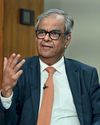The finance minister appears to have done an admirable job with limited resources, but a closer reading of the revenue estimates and expenditure plans has experts worried.

Almost a month and a half before Finance Minister Arun Jaitley rose to present his third Budget, the government had already started sounding off the people about its main worries. In public pronouncements , Prime Minister Narendra Modi, finance minister Jaitley, and his deputy, Minister of State for Finance, Jayant Sinha, spoke increasingly about rural distress and the overall gloom and doom in the global economy. The fact that the government felt that the only way to address the issues was through increased public expenditure, especially on infrastructure, also found mention. The huge mass of non-performing assets in banks and the need to clean them up was voiced. As did the urgent requirement to boost manufacturing, create a hundred million jobs and provide a stable taxation regime.
A couple of weeks before the Budget, the Prime Minister reiterated the necessity for jobs in the grand, week-long Make in India programme in Mumbai and the need for a stable taxation regime that would not penalise investors. And, just a day before the Budget, on Sunday February 28, Prime Minister Modi spoke of his dream of doubling farmers’ income in five years.
In essence, what the Finance Minister needed to do while presenting the Budget proposals were pretty clear in the run-up to the actual speech. The question was:whether he would be able to tackle all the issues the government had identified, given that he had presented two fairly lacklustre Budgets in the past. The second question was: given the fact that the economy needed a stimulus to stay in the 7 per cent-plus growth rate, would he breach the fiscal deficit targets.
Diese Geschichte stammt aus der March 27, 2016-Ausgabe von Business Today.
Starten Sie Ihre 7-tägige kostenlose Testversion von Magzter GOLD, um auf Tausende kuratierte Premium-Storys sowie über 8.000 Zeitschriften und Zeitungen zuzugreifen.
Bereits Abonnent ? Anmelden
Diese Geschichte stammt aus der March 27, 2016-Ausgabe von Business Today.
Starten Sie Ihre 7-tägige kostenlose Testversion von Magzter GOLD, um auf Tausende kuratierte Premium-Storys sowie über 8.000 Zeitschriften und Zeitungen zuzugreifen.
Bereits Abonnent? Anmelden

"Inaction is worse than mistakes"
What was the problem you were grappling with?

TEEING OFF WITH TITANS
BUSINESS TODAY GOLF RESUMES ITS STORIED JOURNEY WITH THE 2024-25 SEASON OPENER IN DELHI-NCR. THERE ARE SIX MORE CITIES TO COME

AI FOOT FORWARD
THE WHO'S WHO OF THE AI WORLD GATHERED AT THE TAJ MAHAL PALACE IN MUMBAI TO DELIBERATE THE TRANSFORMATIVE IMPACT OF AI ON INNOVATION, INDUSTRIES, AND EVERYDAY LIFE.

Decolonising the Walls
ART START-UP MAAZI MERCHANT IS ON A MISSION TO BRING INDIA'S FORGOTTEN ART BACK HOME

"I'm bringing Kotak under one narrative, one strategy, one umbrella”
Ashok Vaswani is a global banker who spent most of his career overseas at institutions like Citi Group and Barclays, among others.

CHOOSING THE CHAMPIONS
The insights and methodology behind the BT-KPMG India's Best Banks and NBFCs Survey 2023-24.

'INDIA IS AT AN EXTREMELY SWEET SPOT'
The jury members of the BT-KPMG Survey of India's Best Banks and NBFCs discuss developments in the banking sector and more

FROM CRISIS TO TRIUMPH
Dinesh Kumar Khara stewarded SBI through multiple challenges during his tenure, while ensuring that profits tripled, productivity soared, and the bank consolidated its global standing

AT A CROSSROADS
BANKS ARE FACING CHALLENGES ON BOTH SIDES OF THE BALANCE SHEET-ASSETS AS WELL AS LIABILITIES-WHICH ARE PUTTING PRESSURE ON MARGINS.

EXPANSIVE VISION
Bajaj Finance, an outlier in terms of digitisation, faces stiff competition. But it continues to expand its reach